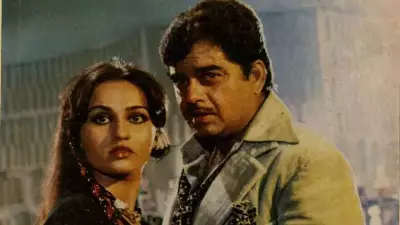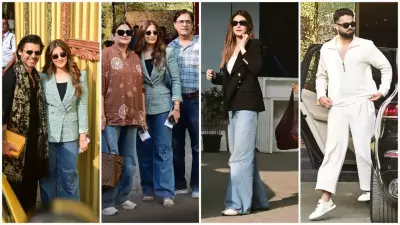
In a groundbreaking move that merges ancient Indian wisdom with modern technological innovation, Vijay Subramaniam, Founder and Group CEO of Collective Artists Network, has launched an Artificial Intelligence-enabled spectacle that's set to transform how Indian epics are presented to the world. 'Mahabharat Ek Dharmayudha', now streaming on Jio Cinema, represents more than just a retelling of the classic saga - it's a bold statement about India's potential in the global content landscape.
The Vision Behind the AI Revolution
The inspiration for this ambitious project struck Subramaniam when he observed a glaring disparity in global entertainment. 'It came from an absolute core place of seeing Game of Thrones and saying, why can't we have something of that production quality?' he revealed in an exclusive interview with Mint's Rollin' with the Boss series. The son of an army officer, Subramaniam's national pride fueled his determination to bridge this gap.
He identified the fundamental problem: India, despite possessing the world's richest folklore and mythology, wasn't commanding the international attention it deserved due to prohibitive production costs. Traditional methods would have required thousands of crores to achieve the grandeur matching shows like BR Chopra's original Mahabharat.
Subramaniam's mission became clear - he needed to marry India's glorious past with modern technology. 'I knew I won't have $100 million to make it. I had two underlying principles of the history verse of which Mahabharat is the first cut. I need to get the Gen Z and young millennials to fall in love with our culture as much as they do with a Thor or an Iron Man or an Avenger. Why? Because I believe that Hanuman's gada is stronger than Thor's hammer,' he explained passionately.
From Metal Drums to Media Mogul
Subramaniam's journey to entertainment pioneer has unconventional roots. A first-class engineering student and heavy metal enthusiast, he found his true calling not in laboratories but behind a drum kit. His band Signaps achieved the remarkable feat of opening for metal legends Iron Maiden after winning the Campus Rock Idols competition, an experience he still counts 'right up there in the top five days of my life.'
When the band disbanded, his army-instilled loyalty prevented him from joining another group. Instead of pursuing engineering, a field he admits he 'sucked at,' he spotted an opportunity in the lack of professional talent agents in the industry. This led him to sports management with tennis legend Mahesh Bhupathi's Global Sport Management, eventually culminating in the founding of Quan and leadership of Collective Artists Network.
His personal philosophy, shaped by military cantonment upbringing, emphasizes 'ridiculous ideal of loyalty' and 'family by choice, not family by birth.' This 'all in or nothing' approach extends to his business ethos, where he values emotional validation above all. 'I have chased the emotional validation of it first,' he stated, believing that feeling good about one's work naturally leads to social relevance and wealth.
Building an Indian Mythology Universe
The AI-powered Mahabharat represents just the beginning of Subramaniam's grand vision. The project was completed in just six months at approximately 1/100th of the usual cost, demonstrating technology's transformative potential. The show maintains the divinity of the original text, credited 'as written in the works of Ved Vyas,' while completely revolutionizing the visual treatment through technology.
Subramaniam plans to emulate the Marvel model, creating an entire interconnected universe of Indian mythology. The lineup includes theatrical releases starting with 'Hanuman' on April 2, followed by 'Krishna', 'Shiva', and three more series. The expansion will include merchandising, toys, and comprehensive branding around these epic characters.
Addressing concerns about AI replacing human jobs, Subramaniam points to his diverse team that included a first-time director from Whistling Woods, a first-time editor and music director, young writers, and about 50 engineers. 'Have I given jobs or have I taken jobs?' he countered, emphasizing that technology enables creators to dream bigger rather than replacing human creativity.
For Subramaniam, the future of Indian content lies in this perfect blend of ancient wisdom and futuristic technology, proving that India's cultural stories can compete with any Hollywood fantasy when presented with the visual grandeur that today's generation expects and deserves.





